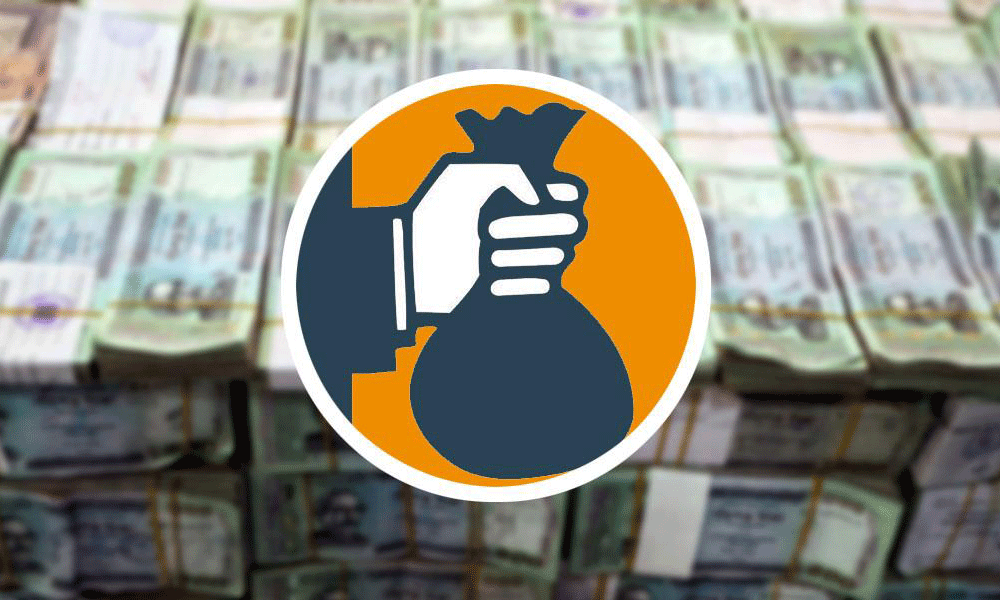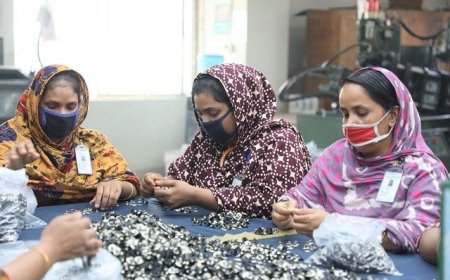NBR unrest takes a heavy toll on business and the economy
The NBR Reform Unity Council declared that their ongoing shutdown and peaceful demonstration will resume on Sunday.

Business Leaders Sound Alarm as NBR Deadlock Paralyzes Economy
Business leaders and economists have voiced deep concern over the ongoing deadlock at the National Board of Revenue (NBR), warning that the stalemate is causing substantial damage to Bangladesh’s trade, investment climate, and overall economy.
The crisis, they say, is choking the country’s import and export sectors, undermining investor confidence, and threatening key industries during their peak operational period.
Experts have further cautioned that the actions of protesting NBR staff are in violation of civil service regulations and are directly disrupting revenue collection, which is critical during this high-demand fiscal window. They fear the prolonged unrest could tarnish Bangladesh’s image among international buyers and investors.
In response, they have urged immediate intervention from the Ministry of Finance, Ministry of Commerce, and BIDA—under the leadership of the Principal Advisor’s Office—to initiate urgent talks with the protesting NBR officials.
Shutdown Continues Nationwide
The NBR Reform Unity Council announced on Saturday that its ongoing shutdown and peaceful demonstrations will continue on Sunday. In a statement, the council said its “Peaceful March for NBR” will take place across all tax, customs, and VAT offices nationwide on 29 June 2025.
The protest began shortly after the government announced on 12 May its decision to restructure the NBR to modernise operations and enhance accountability. Two days later, NBR staff launched a 'pen-down' strike, demanding inclusion in the reform process.
Dr Zahid Hussain: “Economy Held Hostage”
Speaking to the Daily Sun, Dr Zahid Hussain, former lead economist at the World Bank’s Dhaka office, said the NBR demonstrations have brought critical trade operations to a standstill.
“Export and import activities have virtually halted, creating severe disruptions in the economy,” he said. “This is the peak period for revenue collection, yet the protests are severely undermining it. Raw material shortages are hitting manufacturers, exporters can’t meet deliveries, and economic losses are mounting by the day.”
He warned of long-term consequences if the protests persist, including a sharp decline in both domestic and foreign investment. “There is a complete breakdown in communication between the government and NBR staff. This kind of protest wouldn't last this long if dialogue channels were open.”
Dr Zahid stressed that civil servants are legally barred from such strikes. “These officials are funded by taxpayer money. Now they’re inflicting direct losses on the very taxpayers they serve. The scale of economic damage is hard to quantify.”
Business Community: “Economy at a Standstill”
At a press conference in Dhaka on Saturday, business leaders from major chambers and trade bodies echoed similar concerns. They warned that the NBR shutdown is devastating importers, exporters, and manufacturers alike.
“Trade and commerce have ground to a halt,” said Mahbubur Rahman, president of the International Chamber of Commerce, Bangladesh. “There’s an absence of meaningful engagement between the government and the private sector. This is unacceptable.”
In a written statement, Bangladesh Chamber of Industries (BCI) President Anwar-ul-Alam Chowdhury (Pervez) called for immediate steps to protect both the protesting officials' futures and the national economy. He noted that critical export sectors—such as garments, leather, ceramics, and agro-processing—are entering their busiest production phase.
The business community called for an inclusive review of the reform ordinance, aligning with global best practices and national interests. They also demanded stronger transparency and accountability in public institutions, alongside a time-bound reform roadmap for the NBR.
Garment Sector Losing Tk 2,600 Crore Daily
Mahmud Hasan Khan Babu, president of the Bangladesh Garment Manufacturers and Exporters Association (BGMEA), stated the shutdown is causing daily disruptions worth Tk 2,500–2,600 crore in the garment sector alone.
“This crisis needs to be resolved urgently—today, not next week,” he said. “Every delay pushes our industry, and the economy, closer to collapse.”
Textile Mills Association: “We’re Hostages”
Showkat Aziz Russell, president of the Bangladesh Textile Mills Association (BTMA), said businesses are being held hostage.
“This is a power struggle over control and finance,” he remarked. “The protestors are now testing the patience of the government and the people. We’re in the crossfire.”
Protest Leaders: “We Want Dialogue, Not Chaos”
Hasan Muhammad Tarek Rikabder, president of the NBR Reform Unity Council and an additional commissioner, told Daily Sun that protestors have long sought dialogue with the government, but have yet to be invited to the table.
“We’re willing to sit down any day, any time,” he said. “We don’t want this to continue. We want meaningful, inclusive reform through open discussion.”
He criticized the exclusion of NBR representatives from the committee formed on 19 June to draft a policy-management separation framework. “How can reforms be credible if key stakeholders are left out?”
A meeting is now scheduled with the Finance Adviser on 1 July. Hasan welcomed the development but reiterated that the protest would continue until a solution is found.
What's Your Reaction?






















































































